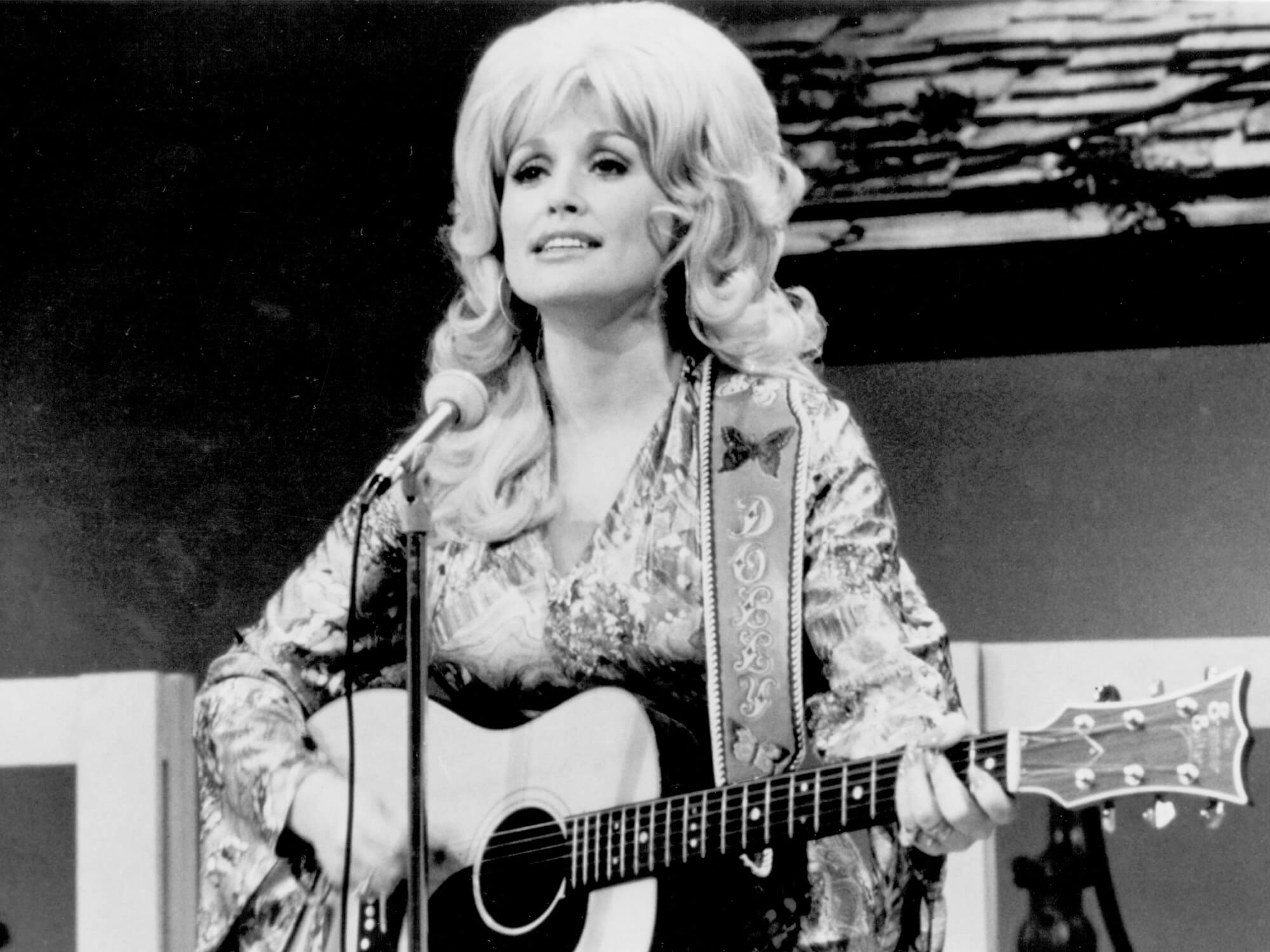Who is The Rock And Roll Hall Of Fame actually for?
“Rock’s highest honour” hasn’t been about rock for a while, but it’s increasingly looking like it’s not about music.

Image: Michael Ochs Archives / Getty
To some, the name “Rock And Roll Hall Of Fame” is as oxymoronic as “pop punk”, “British cuisine” or “Oasis’ 10 Greatest Guitar Moments, ranked”. Does a single institution declaring itself an authority on rock fly in the face of the genre’s historic attitude to institutions, and authority? Perhaps it does – but it’s been a long time since guitar-slinging rockstars were credibly anti-establishment as a group. No, there’s a much stranger problem, found far below the surface-level contradiction in the Hall’s name.
So what is the Rock And Roll Hall Of Fame, and why does it feel so very stale in 2022?
Those included on this year’s inductee list raise more questions than answers – and those nominated but not inducted raise even more. This isn’t a question of pure genre incompatibility – despite what those outraged at Eminem or Dolly Parton’s induction might tell you, the Rock Hall has never been solely for quote-unquote-rock music. The Hall was founded in 1986, and in its first few years inducted James Brown, Aretha Franklin, Marvin Gaye and The Supremes, and has recognised a number of pop, R&B, funk and (more recently) hip-hop artists.
How, then, is the Hall’s recent genre diversity different to what we’ve seen before? By its founding, rock ‘n’ roll had been codified as an attitude as well as a genre, one defined by power, authenticity and confrontation. Aretha Franklin’s music might not sonically class as rock ’n’ roll, but you could bake a potato with the pure rock energy she put out.
Historically, then, the Hall recognised pop music through the lens of rock music – rewarding the level of artistry that’s so intense that it can’t help but be confrontational, if not counter-cultural. But it seems that in its scramble to stay relevant, it’s losing its footing. There’s been a well-justified litany of criticisms levelled at who the Hall does and does not induct, especially along the lines of gender bias – inductees are overwhelmingly male. It is of course a priority for the Hall to address that, if it wants to retain credibility in the eyes of younger music fans.
With that in mind, 2022 being Kate Bush’s third time snubbed by the Hall feels beyond a mere oversight. Equally, it’s hard to figure out what makes the soggy easy-listening balladry of Lionel Richie more apt for the Hall than the afrobeat innovations of Fela Kuti or the pioneering alternative hip-hop of A Tribe Called Quest.
There’s no obvious explanation as to these choices: we can only see what leaks through the rather opaque nomination and voting process. Since its inception, there’s been very little transparency about what makes a nomination, and looking at the increasingly motley crew (not them) of nominees, it’s almost impossible to draw any one conclusion. There have been accusations that either the voting committee are just voting on personal taste, and that some artists have only been nominated or inducted to boost the Hall’s image.
That’s not very rock ’n’ roll, you might think. But isn’t it?
Well, isn’t it?

Arguably, the state of the Rock Hall is an apt reflection of the 2022 state of rock as an institution. The old guard scrambles to maintain the idea that rockstars, having fought well on the field of battle, shall feast forever in the hallowed halls of Valhalla, Ohio, general admission $35. Outside of the lucrative nostalgia circuit, the rest of the music world has stopped viewing musicians as gods – it stopped a long time ago.
The Rock Hall’s 25-year limit meant that it was looking at the late 50s when it began. At the time of Chuck Berry’s inauguration into the Hall, rock music had already become Livin’ On A Prayer. Spinal Tap had been out for two years. “Rockstar” was starting to become synonymous with “egomaniacal,” leading to the inevitable backlash that was grunge in the 1990s.
Speaking of the 1990s: that’s where the Rock Hall’s eligibility window finds itself now, like a hatchback trundling onwards as the road turns into swamp beneath its wheels. The basic premise of the Rock And Roll Hall Of Fame already feels a little outdated post-MTV, and the lines between genres only get blurrier from here on out. It’s perhaps a little reductive, too, to give the exact same honour to such disparate acts – are NWA really reaching for the same thing as Deep Purple?
At best this comes across as an earnest attempt to court a younger generation, at worst it’s redefining what “rock ’n’ roll” is to suit its own needs, even when those words have really already gained new meaning. It’s your uncle who owns Rumours and no other albums going: “Wow, yeah, this Jay Z gentleman is pretty darn rock ’n’ roll!” in an attempt to spark conversation on a long and depressing car journey. You regret connecting your phone to the car stereo.
Ironically, the most rock ’n’ roll inductee on this year’s list didn’t even want the award. Now that’s how you do it. However, the Hall informed Dolly Parton that it was a little late to decline, and if she could please forget those 30 years of eligibility without even a hint of a nomination, that would be super. Her initial tongue-in-cheek response reflected much better on her than on the Rock Hall, too: there seemed a lot more trust in Parton’s ability to make a rock record to justify her placing, than there was in The Rock Hall’s own motivations for nominating her.
25 years from now, it’s hard to imagine today’s crop of rock and pop stars clamouring for the honour, or even noticing if they’re snubbed or not. Is The Weeknd going to need the Rock And Roll Hall Of Fame when he’s able to carve a trailblazing career atop the charts without the approval of the Grammys? For many, After Hours’ infamous snub and The Weeknd’s ensuing righteous anger cemented him as a more legitimate artist, one operating beyond the tastes of the out-of-touch Academy.
The idea that new rock artists must ‘measure up’ to classic artists is also not a popular one with the newest generation of rock fans and musicians, but it’s an idea that the Rock Hall will forever perpetuate – no matter how many hip-hop artists it inducts, The Beatles are still in there. And just because it’s a newer genre than rock, hip-hop is also not exempt from the same proselytising that feeds the worst aspects of classic rock elitism: go to any 90s hip-hop video on YouTube, and be greeted with a familiar spread of comments lamenting how modern rap is so much worse, things used to be so much better back in the good old days, and I’m 14 and wow was I born in the wrong generation. The 30-year nostalgia cycle has an ugly side, one that the Rock Hall will forever have to contend with.
Ultimately, the Rock Hall now feels like it is trying to be for everyone – the whole gamut between Rage Against The Machine fans, Duran Duran fans and pure classic rock fans. Such a monolithic institution will have a hard time coming across as sincere to all camps, however, especially when the core tenets of a rock ’n’ roll attitude – for better or for worse – are authenticity and not appealing to everyone.
For more features, click here.
